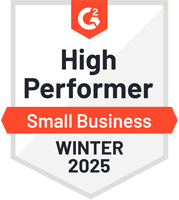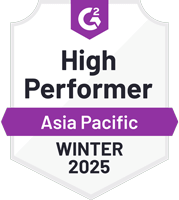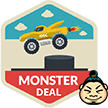Pretty much everyone with Internet access has heard the term “Page Authority” at least once in their lifetime by this point.
But what does it mean?
In the old days of Google, there used to be a thing called PageRank, which was a centralized authority metric. It measured the number of backlinks to determine how well a page would perform in SERPs.
But that was quite a few years back, and Page Authority is far from what it used to be. In fact, it’s not even a single metric anymore, but rather a collection of signals.
Google is actually quite secretive about how Page Authority works and even though we have a pretty good idea of what affects it, we do not know all of the finer details of what actually influences it.

Keeping users and developers guessing how exactly Google’s algorithms work is a good way of preventing people from finding ways to abuse it and encourage them to focus on producing high-quality, engaging content instead.
According to some sources, there are about 200 hundred signals that affect Page Authority, but today we are going to focus on the ones with the most impact.
You have probably already guessed the first factor. It’s none other than your backlink profile.
A Strong Backlink Profile = Higher Page Authority
At this point, I think we can all agree that backlinks are essential to any site’s search engine optimization. And, sure enough, it has its effect on your Page Authority as well.
However, to make a positive impact, it’s not going to be enough to simply build more links. Google is pretty good at noticing links that have been built using shady techniques and simply getting more of them isn’t going to do the trick.

All of your links need to come from authoritative websites and fit in organically. Straight up purchasing links is strictly prohibited, and link exchanges are in a somewhat of a grey area, so running a full-on link building campaign should be on your to-do list.
Generally speaking, the best ways to build links are guest posting, niche edits, broken link building, etc.
OutreachMama has a pretty awesome guide on some advanced link building strategies which I highly advise you to check out.
Your Site’s Performance
Yep, the speed at which your site loads has an effect on its Page Authority. It directly influences your user’s experiences and even a single extra second of loading can cause people to bounce from your page without even giving you a chance to present your content.
You should really pay attention not to leave any blank or duplicate pages and fix broken links as soon as you find out about them. I would also advise using some sort of a broken link checker that runs scans with set intervals and sends you automated reports.
Of course, the optimization of your content matters immensely as well. And by optimization, I mean proper use of keywords, without stuffing more than 2.5% into your text, and, obviously, making sure you’re actually providing your readers with valuable information that engages with them.
Providing quality content should always be your main priority regardless of whether you’re trying to increase your Page Authority or not.
Search Intent
Search intent isn’t really something you would think about right off the bat, but it’s actually pretty important for improving your Page Authority. To put it bluntly, your users’ search intent needs to align with your website.
For example, if people came to your website seeking information about something, while all of your content is transactional, your pages aren’t going to rank for informational queries. So, to balance things out, a good idea would be to add a few informational articles to satisfy those searchers.
This will add relevance to your website and increase your chances of getting more Page Authority.
Brand Mentions
Okay, how exactly the brand mentions work is a bit of a corporate mystery hidden by Google. Still, there is one thing that is pretty clear about them.
The more your brand gets mentioned on other resources, the better it is for you, but that one’s rather obvious.
Your User’s Search Histories
Alright, this might sound a little shady, so allow me to explain before everyone reading this goes deleting their cookie files and installing extra VPNs.
Google has become quite good at personalizing search results pages depending on which websites the users have been browsing. So, if they have visited your website a couple of times before, the next time they search for one of your keywords, you’re much more likely to show up in the results page.
And while it might not have the biggest impact on your Page Authority, this system helps retain users and even boost your conversions a bit.
Social Media
This one ties in directly into the previous point about personalization. You’ve probably noticed your cookies at work while browsing Facebook yourself.
After visiting your site once or twice, not only will users get an increased chance of you showing up in SERPs, but the content you put on on your social media might appear in their feed as well.

Getting tons of shares, likes, and comments is also great not only for your brand’s image but also for your Page Authority. It works kind of like voting: if a lot of people share something, that means it’s probably pretty good.
Page Authority Is Determined on a Page-by-Page Basis
While some SEO tools feature metrics like Domain Authority, Google explicitly said that Page Authority (it’s in the name, really) is determined for each page individually.
So, those tools aren’t able to give an accurate representation of your Page Authority, even though they really want to. Instead, what they’re showing is how they think Google ranks things, not how it actually does.
All in all, Page Authority is kind of an elusive topic, but you can definitely get it up by optimizing your pages for performance, SEO, producing high-quality, engaging content, building strong backlinks, and avoiding grey and black-hat techniques.
Looking for more information on how to optimize your site for SEO? Be sure to take a look at this definitive guide about the most efficient SEO strategies in 2020.












